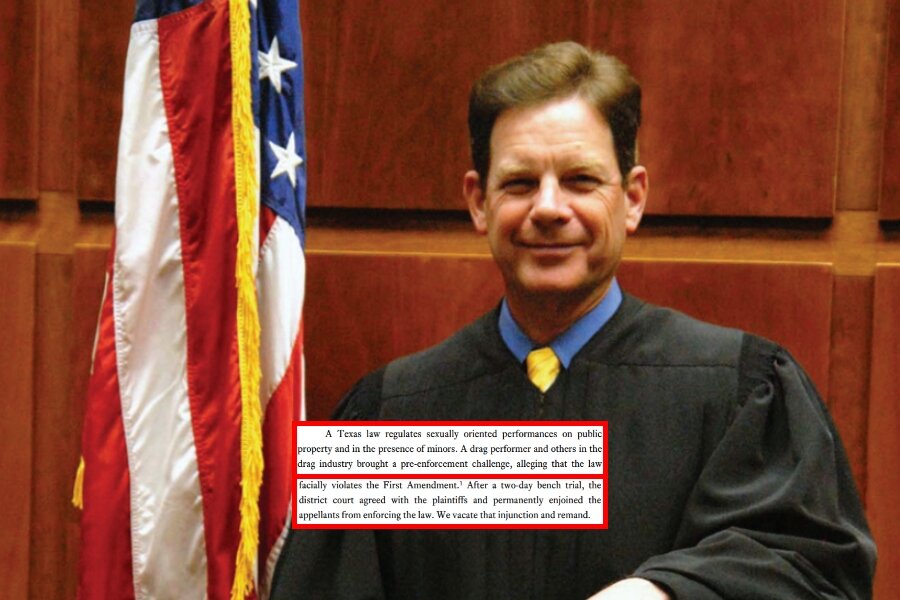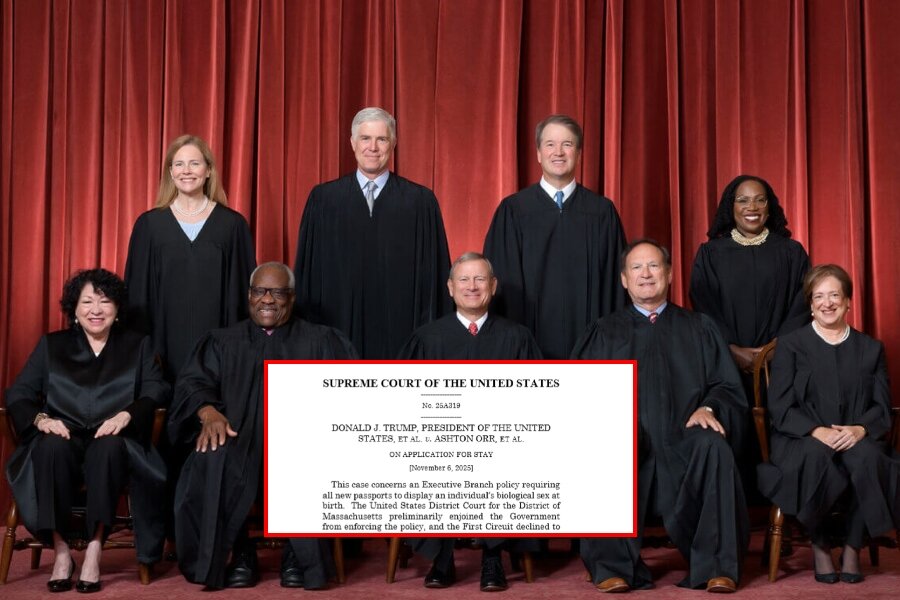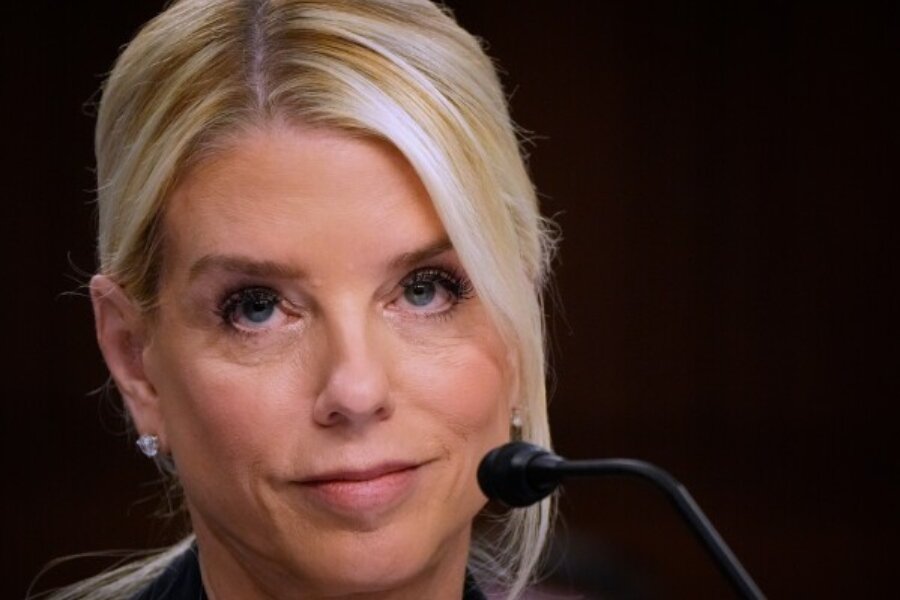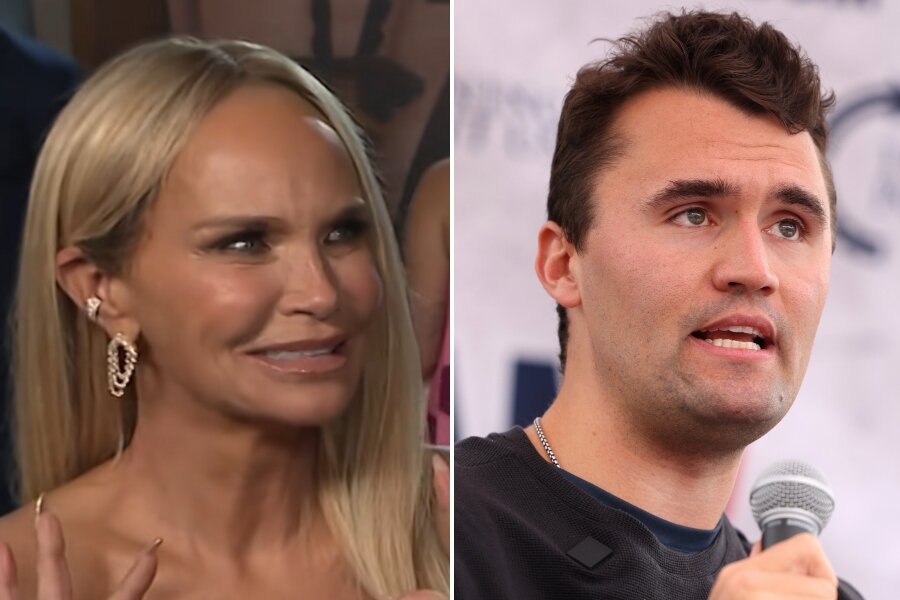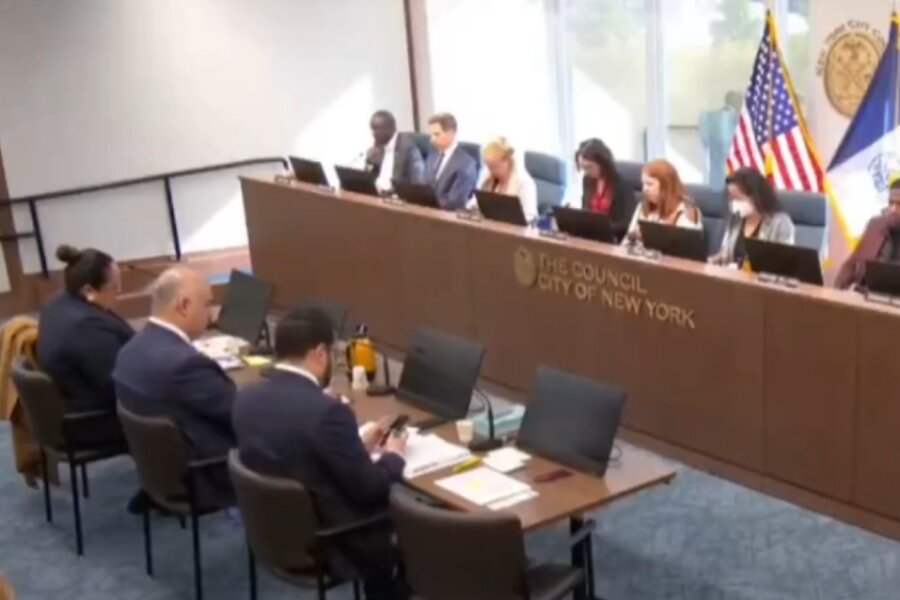A federal appeals court on Nov. 6 allowed Texas to enforce a state ban on drag shows performed in the presence of minors.
A three-judge panel of the U.S. Court of Appeals for the Fifth Circuit voted 2–1 to vacate a 2023 injunction blocking the law that was issued by a federal district court.
The appeals court directed the district court to throw out pending claims against all of the defendants except Texas Attorney General Ken Paxton in the case known as The Woodlands Pride Inc. v. Paxton for lack of standing. The lead plaintiff, a nonprofit known as The Woodlands Pride Inc., which was found to lack standing, sponsors an annual pride festival in Montgomery County, Texas.
Standing refers to the right of someone to sue in court. The parties must show a strong enough connection to the claim to justify their participation in a lawsuit.
The law known as Texas Senate Bill 12 regulates “sexually oriented performances” that take place on public property and in the presence of minors, U.S. Circuit Judge Kurt Engelhardt wrote in the majority opinion. A “sexually oriented performance” is defined as “a visual performance” that features a performer who “is nude” or “engages in sexual conduct,” and “appeals to the prurient interest in sex.”
The law has never been enforced because the U.S. District Court for the Southern District of Texas blocked it before it could take effect. Claiming the law violated the First Amendment to the U.S. Constitution, challengers sued to block it under Section 1983 of Title 42 of the U.S. Code, a federal law that allows individuals to sue the government for civil rights violations, Engelhardt said.
The appeals court found that The Woodlands Pride Inc. does not have standing to pursue an injunction against any of the appellants because its activities are not affected by the state law. The activities the nonprofit acknowledged doing, such as distributing condoms and lubricant, and testing for sexually transmitted diseases, are not prohibited by the state law, Engelhard said.
“None of the trial evidence indicates that the performances are ‘in some sense erotic.’ Because Woodlands Pride does not intend to engage in conduct that is arguably proscribed by S.B.12, it does not have standing to seek an injunction against any of the appellants,” he said.
However, the co-plaintiff production company, 360 Queen Entertainment, may continue its lawsuit challenging the state law. Its performances may be affected by the law because they contain nudity and have been attended by children, the appeals court ruled.
Engelhardt said that the district court’s ruling came out before the U.S. Supreme Court’s 2024 decision in Moody v. NetChoice, which laid out criteria for determining whether the rights of performers or businesses were being violated.
The appeals court found that the district court did not carry out a proper analysis of whether the state law violates the First Amendment rights of performers and businesses. “Consequently, we are unequipped to undertake this task in the first instance, and remand for the district court to do so,” the appeals court said, sending the case back to the district court.
U.S. Circuit Judge James Dennis dissented in part. He agreed with the majority that the case should be remanded to the district court, but disagreed with denying standing to The Woodlands Pride Inc. and another co-plaintiff.
Share your thoughts by scrolling down to leave a comment.

